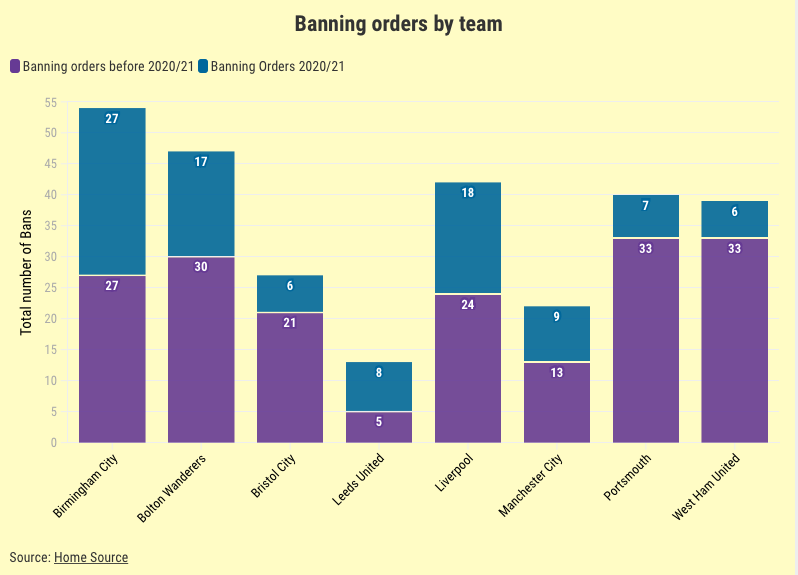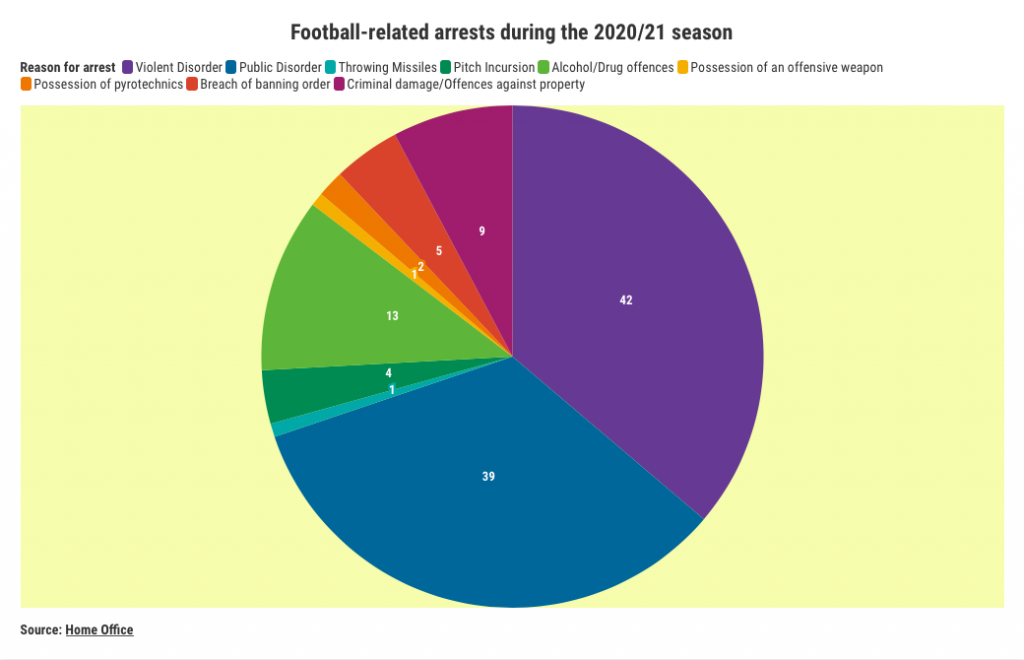Bolton Wanderers fans have earned themselves an unwanted podium finish after being ranked as the Football League club to receive the third-most banning orders across the 2020/21 season.
They scooped up a bronze-clinching 17 bans in a season where fans were mostly absent, bringing the club’s grand total to 47 – of which 30 were already in order at the beginning of the campaign, according to data released by the UK Home Office.
Banning orders are court-imposed measures preventing offending fans from attending matches, designed to reduce violent and disorderly behaviour in stadiums.
They are attributed to have been one of several key legal and policing tactics responsible for the reduction of football violence in the UK in the last few decades.
Across the 2020/21 season, 93% of matches in the UK were fan-free, with the remaining 7% at reduced capacity.
Therefore, many of those issued might be carry-overs from incidents that took place the previous season, where court cases had been set months into the future.
Birmingham City led the way last season on 27, with clear daylight between them and Liverpool in second place with 18 orders handed out.
The below graph shows the eight teams handed the most banning orders along with how much their total of banned supporters increased.

Most banned regions
We can also use the Home Office data to calculate which region in the UK racked up the highest number of supporters to be outlawed from stadiums, relative to attendance.
The West Midlands, carried at least in part by the misbehaviours of the Birmingham support, accumulated the most banning orders per 1000 supporters of any UK region, with 34.65.
Yorkshire and the Humber (34.58) was narrowly pipped to the post.
The mild-mannered folk of the North East and East were least likely to fall foul of the courts, with only 1.76 and 3.98 banning orders per 1000 across the season.
Despite the best efforts of Wanderers and Liverpool, the North West ranks only third, with a middling 18.37 fans per 1000 prohibited from attending matches.
Clubs in Wales playing in the English leagues have not been included owing to a lack of data.

Football-related arrests
The statistics released also included footballing related arrests, of which there were 116 across the season, down from 1089 the previous year – again, an obvious function of the gutted stadia.
Bolton contributed two of these, both of which were for breaches of banning orders.
And Wanderers can expect a similarly high finish when next years data gets released, having received a remarkable nine banning orders in one match last month when they lost 4-0 to Bolton Wanderers.
An assortment of missiles and debris were thrown onto the pitch as the atmosphere soured during the second half, with multiple fans ejected from the stadium.
Across all of the UK’s four professional leagues, violent disorder was the most common cause for arrest, followed by public disorder, with 42 and 39 people respectively falling foul of the law.
Amongst the more niche reasons for arrest were two incidents of possession of pyrotechnics, four of pitch incursion and one of possession of an offensive weapon.
A breakdown of all 116 incidents is detailed in the below graph.




